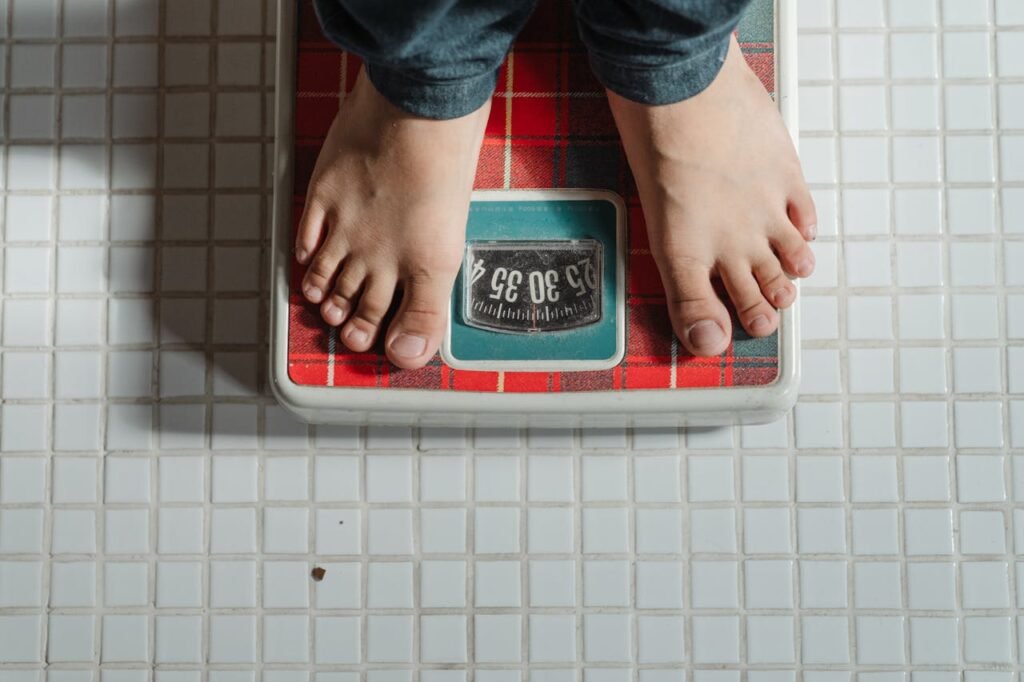Water Fasting: The Complete Guide

Water fasting is not only great in terms of health but it is an ancient, powerful practice people have used for healing, spiritual clarity and rapid weight loss for many centuries.
If you are looking for a complete guide to water fasting, then you have come to the right place; in this article you will learn about how water fasting works, what makes it effective, and how to water fast safely, whether you are simply looking to drop stubborn fat, reset your digestive system, or heighten your mental clarity.
Make sure you stick with us through the content until the end as you’ll discover:
The real science behind water fasting.
How to access the most fat-burning benefits of water fasting.
How long you can fast depending on your reasons and goals.
What you can expect both physically and mentally while water fasting.
How to safely break your fast in a way that makes a lasting impact.
Are you ready to learn everything about water fasting that you will need to know?
Let’s get into it.
Water Fasting and Fat: What You Need to Know
Water fasting and fat loss go hand in hand. When you stop eating and drink only water, your body starts using fat stores for energy. This switch in metabolism is called ketosis and usually starts 24–48 hours into a water fast.If you’re curious about what ketosis actually is, Harvard Health has a helpful breakdown on how your body uses fat for fuel.
When your body is not getting any calories from food, it first uses its glycogen stores (the form of carbohydrates stored in your liver and muscles) for energy. Once glycogen is depleted, your body will begin breaking down fat into ketones to fuel your body and brain.
This is why water fasting is such an effective way to target body fat, without exercise or counting calories.
If you’re new to fasting, you may also benefit from understanding how intermittent fasting for beginners works, which is often a more approachable gateway into deeper fasts like water fasting.
There is something else going on here: fat is not just stored energy; it also functions as your body’s storage unit for toxins. As fat breaks down during water fasting, often some detoxification occurs, so you start to feel cleaner and lighter and more energized.
Water Fasting History: Where It All Began
Water fasting is nothing new. In fact, it is one of the oldest healing practices in the history of humankind. Ancient civilizations including the Greeks, Egyptians, and Chinese were in the habit of fasting to combat illness and to help intensify their spiritual focus.
Hippocrates, the father of modern medicine, used to tell patients with varying illnesses that “to eat when you are sick is to feed your sickness,” and fasting even if for a short time becomes a key part in the treatment plan. Additionally, religious and spiritual leaders such as Prophet Muhammad ( S.A.W) and prophet Jesus all engaged in fasting for long periods of time using only water.
Today, science is starting to catch up with what ancient cultures have known all along: water fasting has very real effects on the body and the mind.
Fasting Speed Advantage: Why Fat Melts Fast

One real advantage of water fasting is the speed of fat loss. In contrast to a normal diet, water fasting allows rapid fat loss because no new calories are being consumed. Therefore, the body needs to dig into fat stores for energy.
In general, a person can burn about 0.5 to 2 pounds a day while water fasting. The actual fat loss ranges between individuals depending on the starting body composition and activity level.
While you are fasting, you have no carbohydrates, so the body’s insulin decreases considerably making it easier to access stored fat.
Fasting also improves your metabolic flexibility, that is your body’s ability to change fuel sources efficiently. Therefore you get better fat loss after fasting is completed.
Retention Advantages: Why You’ll Keep the Fat Off
Water fasting has retention benefits for maintaining fat loss long-term compared to crash diets where individuals will typically regain weight. Fasting goes through metabolic adaptation and hormonal recalibration, which includes:
Decreased insulin resistance
Increased leptin sensitivity (the hormone regulating hunger)
Resetting taste buds and cravings
Typically, after fasting, many people will gravitate toward healthier food choices naturally. Cravings for junk food and sugar decreases, therefore making it much more straightforward to keep off your weight afterward. And when you do return to eating, focusing on science-backed fat-burning foods can help you maintain the progress you’ve made.
Choosing Your Fasting Length Wisely
How long should you water fast? It depends on your goals. Here is a rough estimate:
24 – 48 hours: Good for beginners; increases insulin sensitivity, initiates fat loss.
72 hours (3 days): Initiates autophagy (repair at the cellular level), deeper fat burning, cognitive clarity.
5 – 7 days: Major fat loss, deeper detox, metabolic restart.
10 + days: To be completed under medical supervision. Used for healing chronic conditions or transformation.
Always start small and gradually increase your fasting time. Listen to your body; if you are feeling extreme weakness, dizziness, or confusion discontinue your fast.
Hydration and Fiber: The Facts About Water Fasting
The need for hydration during a water fast increases significantly. Normally, we are getting water, more or less, from our foods that we eat, but now we have to drink water to stay hydrated.
Consider drinking 2.5-4 liters a day of just pure water. I also recommend drinking water with a tiny pinch of Himalayan salt to help with electrolyte retention.
As for fiber, water fasting means we are not taking in any fiber. A complete lack of fiber is fine for a short period of time and this is exactly what we want because this gives our digestive system a break.
For a short time, we allow our gut to take a vacation, relax, and rejuvenate. When we break our fast, we can start to introduce our fruits and vegetables with good, quality fiber.
Digestion and Absorption Reset
For most of us, our digestive systems and organs are working constantly because we are always eating. During our water fast, our bodies divert that energy away from constantly processing food and towards cellular repair and elimination of toxins.
We are able to heal our gut lining, reset our microbiome, and balance out our enzyme production.
When we water fast, we often have a better digestion and absorption combination when we resume eating.
We have all had experiences with bloating, indigestion or other strange food sensitivities for many, this is alleviated after a few days of water fasting.
Weight Loss Progression and What to Expect

Water fasting for weight loss works quickly, but how quickly?
Here’s a ballpark timeline estimate:
Day 1–2: Mostly water weight and glycogen
Day 3–5: Fat burning starts to ramp up
Day 6–7: Significant fat loss and benefits of autophagy
Day 8–10+: Lot of potential for phenomenal fat loss and total reset
The above timeframes will not be the same for everyone, depending on gender, starting weight, and activity level. Also know that losing fat in a sustainable way depends on much more than the fast: it also depends on what/how you eat after the fast.
Electrolytes Supplements: Will You Need Them?
Yes, definitely especially on longer fasts (3+days). When not eating, the body excretes sodium, potassium, and magnesium. The rapid excretion of these electrolytes prohibits the body from maintaining equilibrium and may cause symptoms of dizziness, muscle cramping, and fatigue.
If you experience any of these symptoms, you can supplement with:
Himalayan salt (or any other salt that has sodium ) or sea salt, (sodium)
cream of tartar (potassium)
magnesium citrate or magnesium glycinate
All of these can be added to your water to make your own electrolyte drink. Just don’t overdo it. If you are fasting for less than 72 hours, consistent natural water intake is usually enough.
Water Weight: What It Is and Why It’s Not Fat
Most people will lose 3–7 pounds in the first 48 hours of their fast but don’t get too excited. That weight is mainly water weight. When you stop eating your body stores glycogen with water, when you burn glycogen you flush the water.
This is normal, and actually a good sign your body is burning fat after the first phase. Real fat loss begins after the water weight. Just have patience and don’t get discouraged.
Mental Benefits of Water Fasting
One of the biggest underappreciated effects of water fasting is what it does to your mental state. Most fasters report:
Laser-sharp focus
Reduced anxiety
Clarity of emotion
A sense of calm and control
This happens due to increased ketones, reduced inflammation, increased BDNF (brain-derived neurotrophic factor). Your brain literally works better in a fasted state.
Fasting also gives you mental discipline, like learning how to handle cravings and reinforced willpower. This in itself can change your entire life.
Breaking Water Fasting Properly
After a water fast, you’ll want to be gentle on the digestive tract. You obviously do NOT want your first meal after a water fast to be something heavy, fast food, or sugar. Here’s what I would recommend for a safe refeeding plan:
Day 1: Bone broth, diluted fruit juices, light fruits (watermelon, papaya), cooked vegetables
Day 2-3: Smoothies, eggs, oatmeal, wet or soft cooked grains, yogurt
Day 4 and forward: Back to whole foods, not heavy proteins, salads
After the fast, don’t drink alcohol, caffeine, or eat a heavy meat meal for a few days. While not very common, some people can have refeeding syndrome if they refeed too fast after a water fast. Take it no faster than you’re comfortable, your body will appreciate it.
Conclusion
Water fasting is a powerful practice that has been used through many different cultures and religions for weight loss, detoxification, mental clarity, and healing. And throughout time, to modern science, it has rightfully gained acknowledgement for unique health benefits.
If you want to lose fat fast, reset your gut and digestive system, or gain focus and mental clarity, water fasting can be an option for you if you approach it cautiously.
But remember water fasting is not just doing the fast; it’s considering the prep and how to break the fast.
Are you ready to give water fasting a chance to see personally how it can transform your life?




2 Comments on “Water Fasting: The Complete Guide”